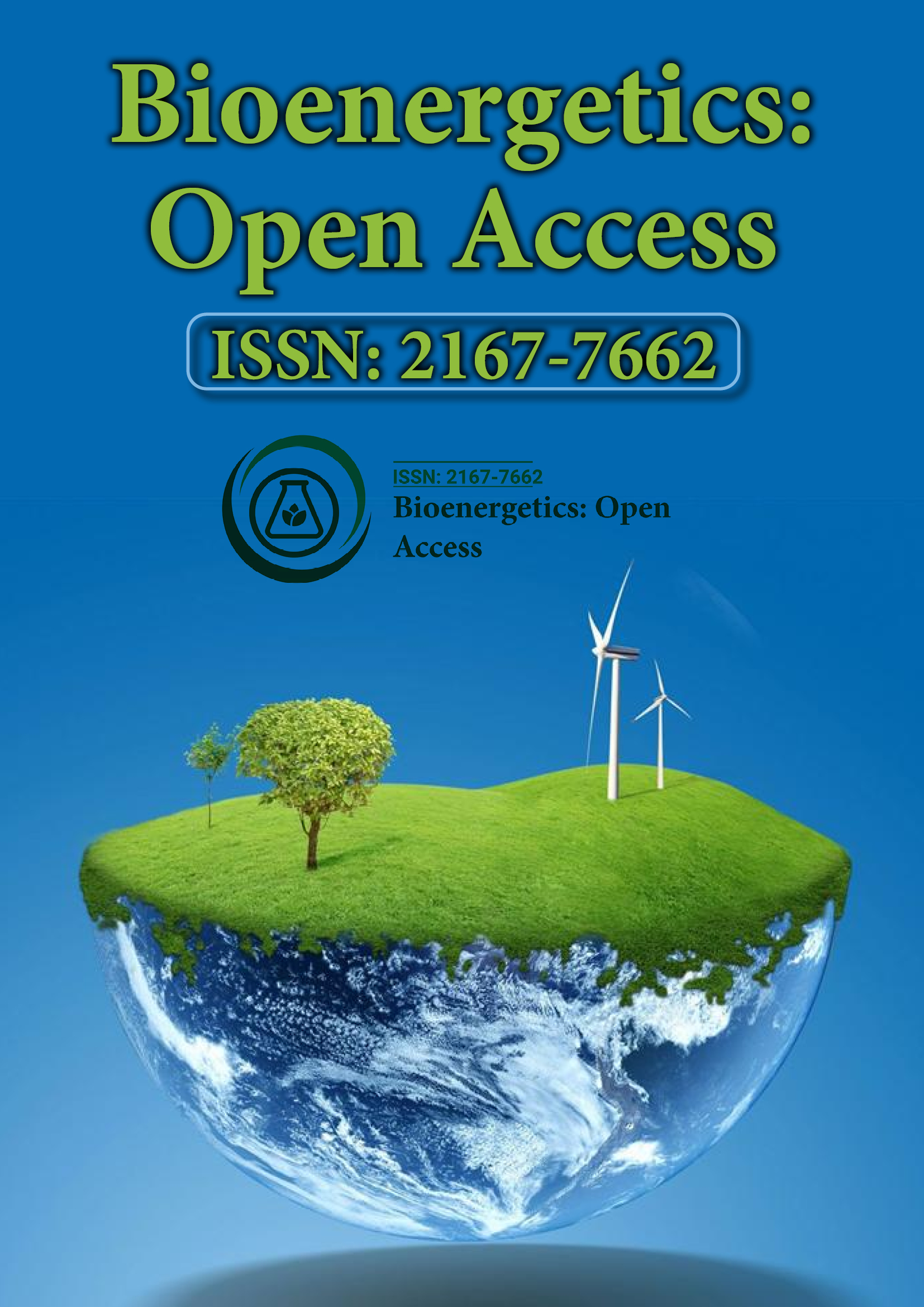Indexed In
- Open J Gate
- Genamics JournalSeek
- Academic Keys
- ResearchBible
- RefSeek
- Directory of Research Journal Indexing (DRJI)
- Hamdard University
- EBSCO A-Z
- OCLC- WorldCat
- Scholarsteer
- Publons
- Euro Pub
- Google Scholar
Useful Links
Share This Page
Journal Flyer

Open Access Journals
- Agri and Aquaculture
- Biochemistry
- Bioinformatics & Systems Biology
- Business & Management
- Chemistry
- Clinical Sciences
- Engineering
- Food & Nutrition
- General Science
- Genetics & Molecular Biology
- Immunology & Microbiology
- Medical Sciences
- Neuroscience & Psychology
- Nursing & Health Care
- Pharmaceutical Sciences
Perspective - (2023) Volume 11, Issue 1
Consequences of Inter Annual Climatic Changes and Biophysical Yield Shock on Agriculture
Xin Patel*Received: 02-Jan-2023, Manuscript No. BEG-23-19670 ; Editor assigned: 04-Jan-2023, Pre QC No. BEG-23-19670 (PQ); Reviewed: 18-Jan-2023, QC No. BEG-23-19670; Revised: 25-Jan-2023, Manuscript No. BEG-23-19670 (R); Published: 02-Feb-2023, DOI: 10.35248/2167-7662.23.11.190
Description
The majority of research examining how climate change affects agriculture has been on average changes in market-mediated responses (e.g. changes in land use, production, and consumption). Global economic models do not adequately capture the response of agricultural markets to climate and biophysical shocks due to Inter Annual Variability (IAV). Here, we demonstrate a robust transmission of IAVs in climate-induced biophysical yield shocks to agricultural markets, which is further amplified by endogenous market fluctuations brought on by inaccurate market and weather expectations among producers. We show that assuming perfect foresight, an usual assumption in the economic equilibrium modelling, could greatly underestimate the volatility of crop prices and consumption (i.e., on average by 55% and 41%, respectively), in contrast to the somewhat more realistic adaptive expectations. We also observe IAV variation among locations and crops, which is significantly mediated by commerce. Our paradigm lays the groundwork for additional research into the complete range of climate impacts on biophysical and human systems. Studying IAV offers fundamentally new insights on measuring and comprehending climate impacts on global agriculture.
Farmers face risk on a daily basis as a result of the unpredictability of weather patterns. Farmers are therefore accustomed to dealing with climate variability and uncertainty, but as ranges of variability increase, this adaptability may be put to the test, posing serious problems for the entire range of food producers around the world, from small-scale subsistence farmers in Africa to massive industrial producers in North America and elsewhere. While the simulated climate change scenarios can be helpful for identifying potential stress points and vulnerabilities in biophysical agro-ecological systems, they frequently ignore farmers' adaptive capacities and practices, a critical component in understanding the relationship between climate trends and agricultural outcomes. Farmers as proactive agents who respond to climate variability, both in the short term (season) and in the long term (land use), are one such factor (decade). When discussing consequences and adaptation in agricultural systems, where people's behaviors and inventive abilities vary greatly and can react to environmental cues rather fast, this omission is extremely troublesome. The usefulness and predictive power of modelling are not in issue in this case, but the lack of human agency in real-world system dynamics points to a significant flaw in modelling approaches to climate change impacts and adaptation. We can logically expect that the development of policies based exclusively on modelling approaches run the risk of conflicting with the actions and positions of real people in implementation because the actual actions and positions of farmers are frequently not well integrated into large-scale system modelling.
The modelling method to understanding change in agricultural systems under climate change and climate variability offers a useful counterbalance to understanding agriculture as an emergent product of human action and social networks in historical and ecological contexts. Farmers' inventive improvisation and real-time management of variability and stochastic occurrences in the social, technical, or ecological realms are referred to as "agency" in this context. The idea of "agriculture as performance" refers to this process of responding to opportunities and challenges as they arise. It has been stressed the significance of understanding farming systems as contingent elements of social and ecological contexts, allowing farmers to use their improvisational skills as needed. Agriculture performance, as opposed to just academic proficiency, emphasizes agriculture as something that is enacted with some kind of informed spontaneity, often known as embodied or tacit knowledge.
Citation: Patel X (2023) Consequences of Inter Annual Climatic Changes and Biophysical Yield Shock on Agriculture. J Bio Energetics. 11:190.
Copyright: © 2023 Patel X. This is an open-access article distributed under the terms of the Creative Commons Attribution License, which permits unrestricted use, distribution, and reproduction in any medium, provided the original author and source are credited.
